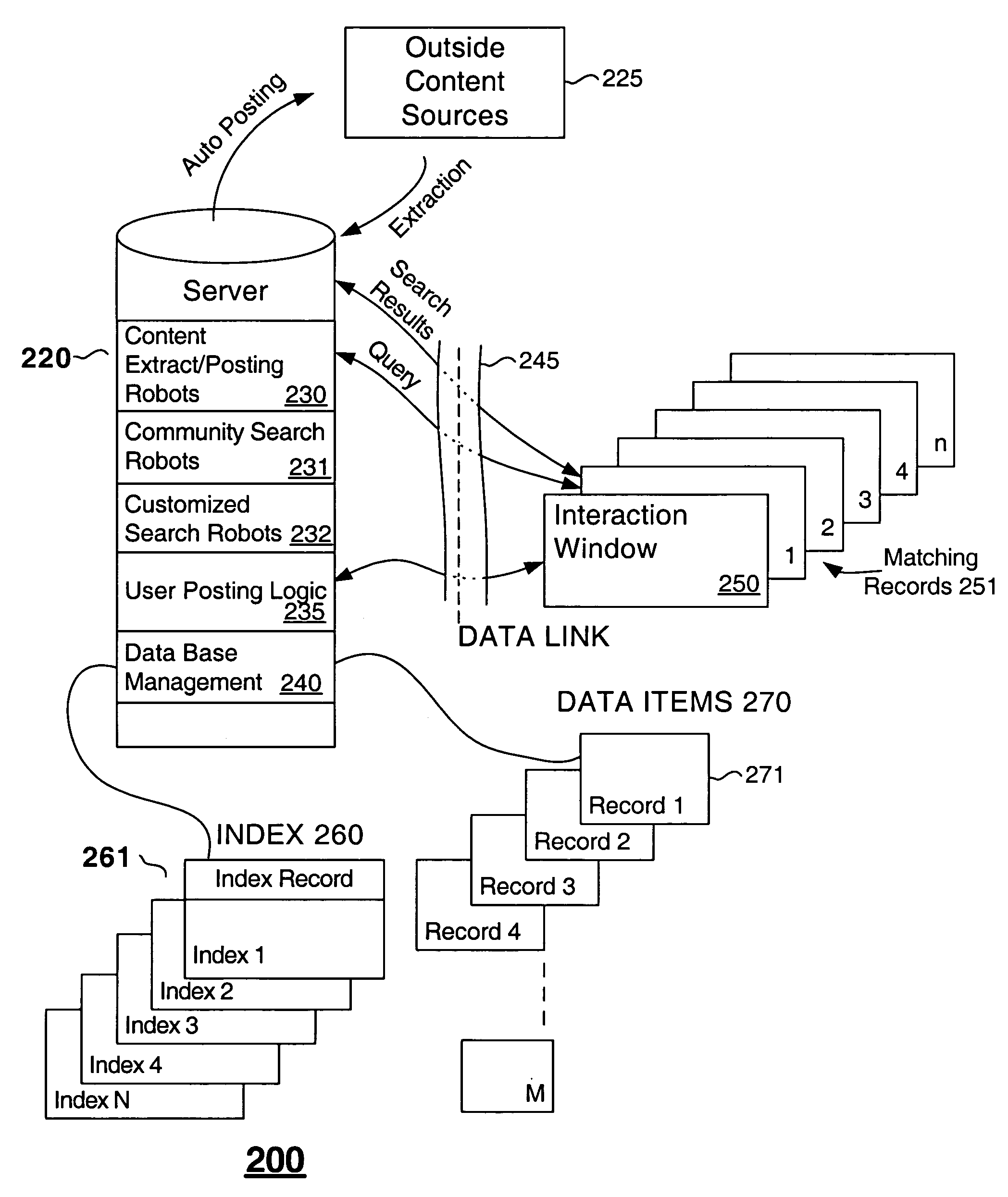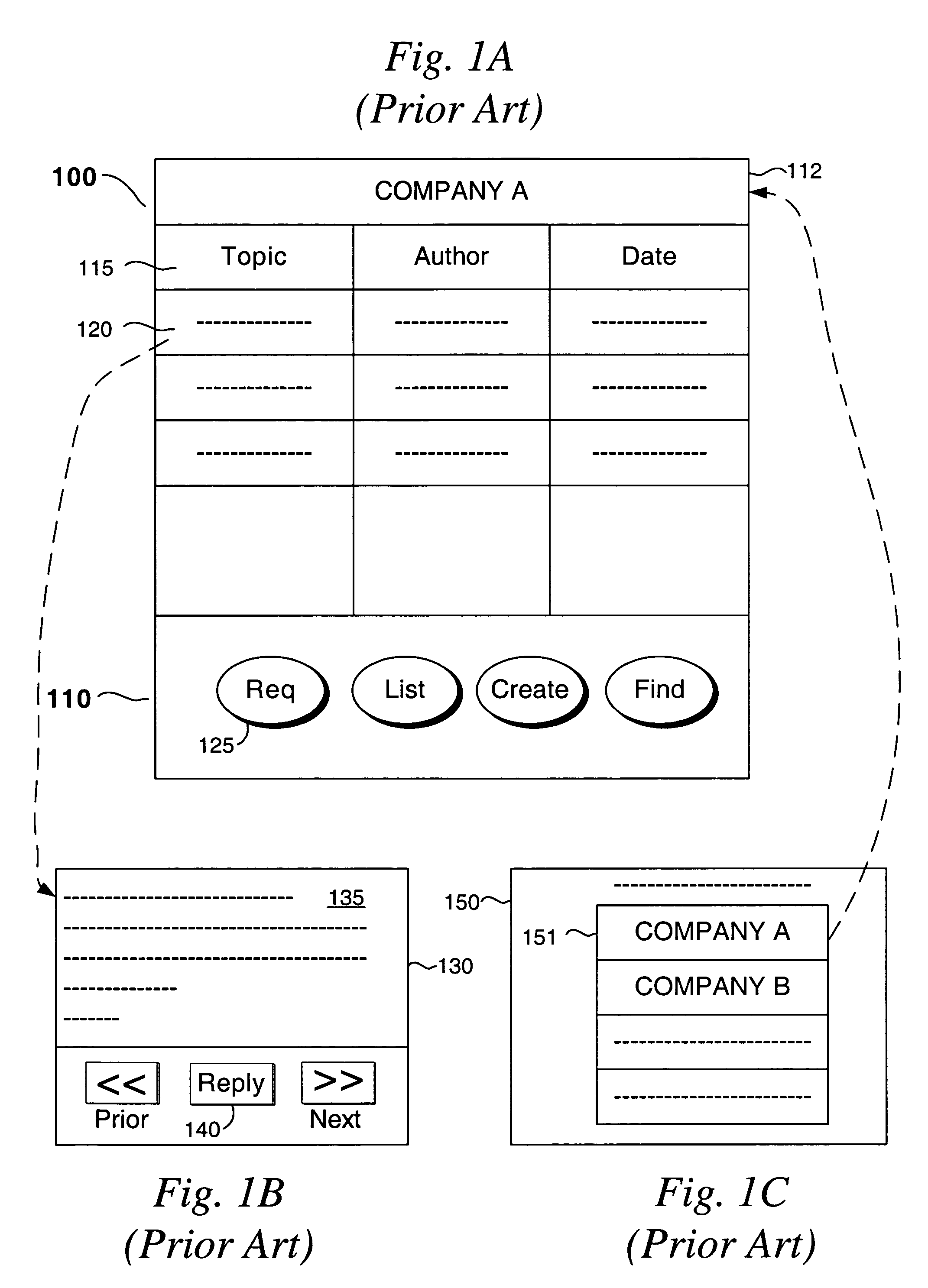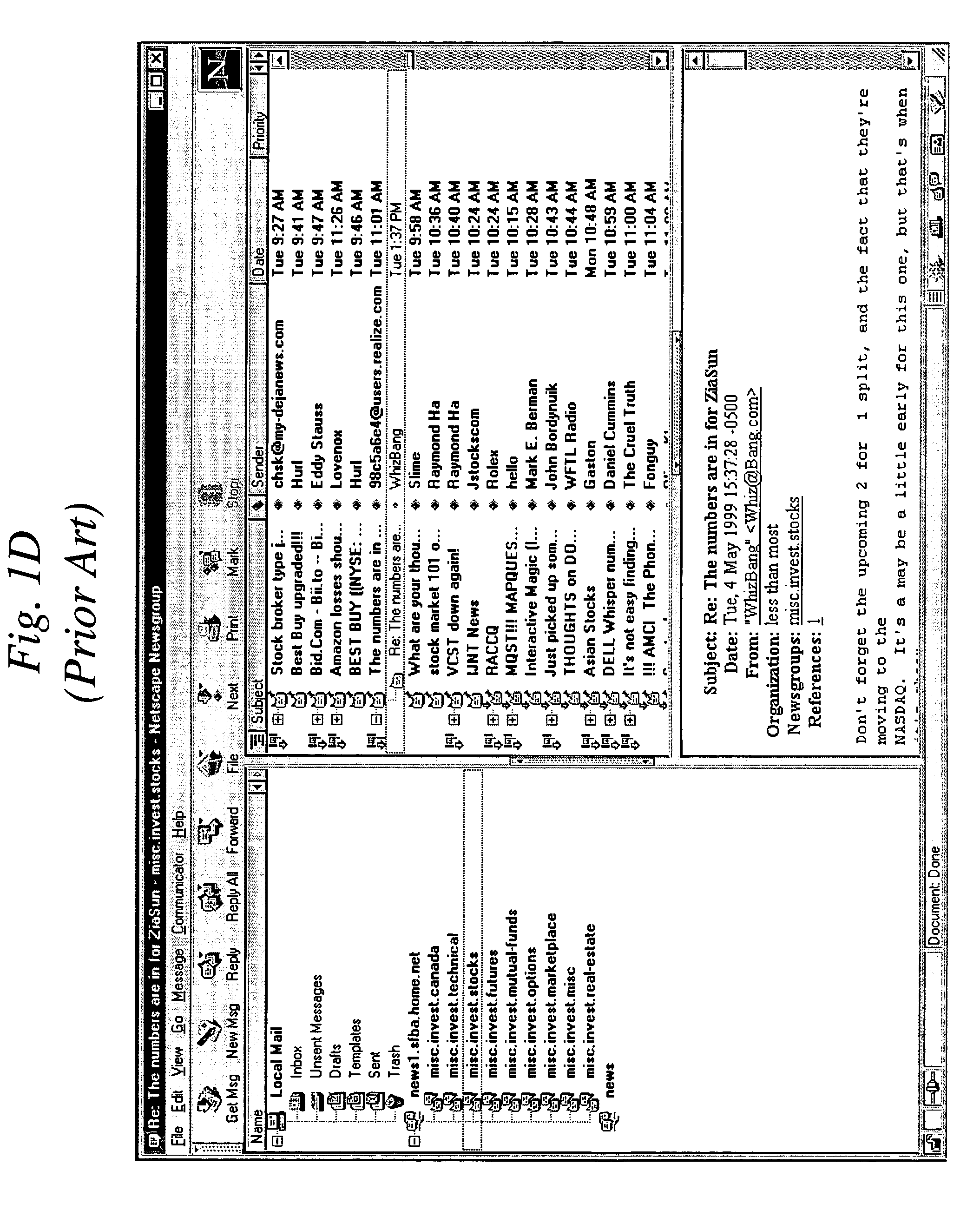Surprisingly, however, over the past 15 years or so they have failed to evolve significantly in sophistication and / or ease of use.
In fact, compared to the developments made in applications
software, user interfaces, internet browsers, etc., online message boards are still remarkably primitive.
However, this
message board, as with each of the boards above, is constricted by the fact that it relies on
HTML coding, which, while easy to implement on the provider side, is relatively static, and not extremely functional from the user's perspective.
This means that a decision must be made by the user early on to narrow the focus of his / her query, and this restricts their later retrieval of relevant material that may be of interest to them.
Accordingly, it is not extremely accurate or flexible, since the user must return to this first search
staging area anytime they want to change subjects.
Since the
display list of all the posted messages from the second stage is now out of
sight, the user can experience significant
frustration in trying to find another message that may have caught his / her attention during the time they were examining display area 110.
This alternative is not attractive, however, since it requires additional keystrokes, and has the effect of now closing area 130 so it is no longer visible by the user.
In short, there is no easy way in the art to browse through messages on a
bulletin board in
random access fashion, or to see both a message
list and content for a particular message at the same time.
While the prior art does allow some searching capability within this second stage, it is relatively primitive in that it cannot transcend the logical area bound by messages for Company A; in other words, it is not possible to search across all subjects for a keyword of interest.
Again, this means that the user is not receiving complete information, and this detracts from the appeal of such
system.
Also, the search constructs possible with the prior
system are very limited, and do not allow for advance filtering techniques, so that, for example, the user can use multiple filters to find content.
For instance, locating postings by a specific author having specific keywords is not possible at this time.
This can take time, of course, and because this portion of the interface has no “memory”—in the sense of remembering the user's predilections and search interests / constructs—the user is required to waste time each time he / she visits this stage to re-formulate the search query to retrieve messages of interest.
These and other noticeable limitations reduce the utility and utilization of message boards, and this in turn results in a number of adverse consequences for service providers, including fewer subscribers, reduced revenue, etc.
These limitations, are due, in large part, to limitations in
HTML, which do not provide for easy creation and manipulation of active display areas for the user.
While other implementations of message boards might provide additional functionality beyond that described for the example above, applicants are nonetheless unaware of any message boards that provide flexible but comprehensive user selection of content.
Furthermore, while more advanced and useful interfaces exist for other applications, they have not been successfully adapted to date in connection with a
message board system.
This program has the
advantage of a flexible interface for reviewing news stories, but does not provide any intelligent support for multiple levels of
bulletin board message organization, message querying, etc.
As the message items are created by individuals, it is often the case that these message items are not placed within an appropriate category (newsgroup), because the user does not have the time, interest or inclination to make certain that his / her message is placed in the right area for others to see it.
Thus, the
raw data examined by such interface is not intelligently created ab initio, and this means that it is not classified or managed (i.e. by
subject matter / class, or in accordance with groupings that might be more
germane to a particular
community of users).
This lack of organization in the content, of course, handicaps the functionality of the interface as well.
Consequently, while this interface has some apparent advantages that could be imparted to
bulletin board systems, it does not provide an optimal solution to the overall problem of identifying relevant content for a group of users, and then providing a tool for easily locating and browsing through such content.
Unlike most other application programs, most prior art online message boards have no flexible front end; thus, it is extremely difficult to identify, cull out and review large collections of unorganized messages.
There is no effort made to intelligently monitor the needs, interests, etc., of the subscribers, and / or to find / tailor content (and / or its expression) based on such observations.
Accordingly, such online message board systems do not truly or accurately reflect the needs, interests, etc., of its users, which reduces their appeal and attractiveness to users.
This in turn means reduced advertising revenues and / or subscriber fees.
These limitations in prior art message boards have also inhibited true electronic “
community” based
mass sharing and learning of information content.
In other words, the apparent initial promise of
the Internet to bring together thousands of users so that they can collectively share information, opinions, insights, lessons, etc., has not been effectively realized to date.
Even then, as noted above, retrieving this information in any intelligent fashion is stilted significantly by limitations in the search / retrieval interface engines of current bulletin board systems used by service providers.
In short, there is an abundance of data online that would be of interest to broad classes of users, but no easy way to extract meaningful information, because it must be manually reviewed in inefficient ways.
 Login to View More
Login to View More  Login to View More
Login to View More 


